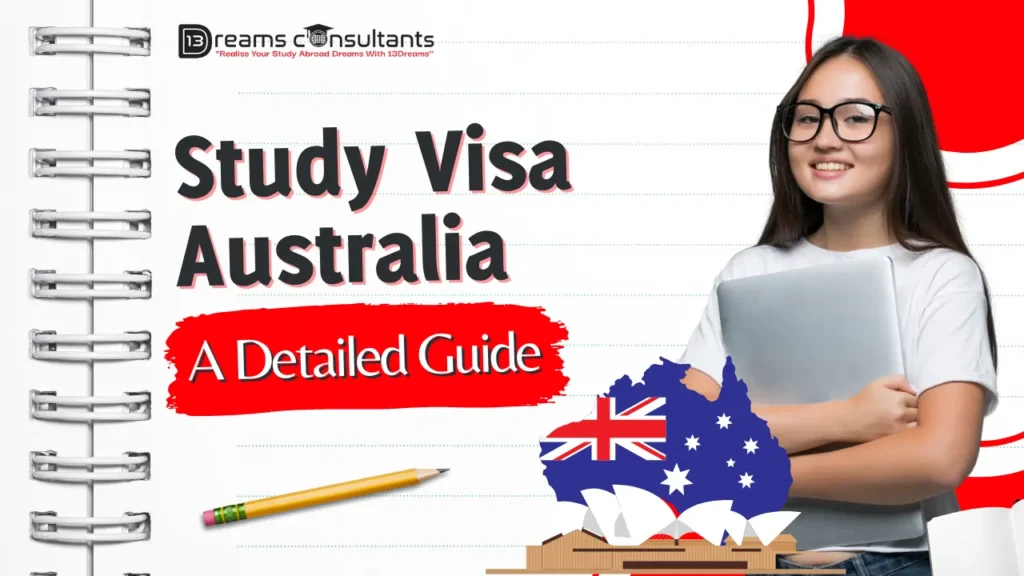The landscape of international education is constantly evolving, and with it, the immigration policies that govern study visas. In recent times, we’ve seen significant changes across various countries, aimed at refining the process and ensuring a quality experience for genuine students.
From Australia’s introduction of the Genuine Student requirement to the United States’ adjustments in visa application fees and interview waivers, these updates reflect a global trend towards more stringent, yet clear and structured immigration protocols.
This blog aims to demystify the latest policies and provide a comprehensive guide for students embarking on their international study journey.
Overview of recent changes in study visa policies globally
There’s been a mix of trends in recent study visa policies around the world:
Stricter Requirements:
- Financial Proof: Many countries like Canada and Australia have increased the amount of money applicants need to show they have for living expenses.
- English Language Skills: Australia has raised the minimum IELTS score required for student visas.
- Genuine Student Checks: Countries are taking steps to ensure students are enrolling for legitimate educational purposes, like Australia’s “Genuine Student” status requirement.
Specific Country Changes:
- Australia: Increased financial proof required, higher minimum IELTS score (6.0 to 6.5 for some visas), and a mandatory “Genuine Student” status.
- Canada: Limited total number of study permits issued in 2024, increased proof of financial resources needed (around $20,635).
- UK: No longer allows switching student visas to work visas until after completing studies. Restricted who students can bring as dependents (exceptions for research scholars). Raised student visa application fees.
- Ireland: Introduced a 2-year post-study work permit for Bachelor’s/Master’s graduates and 3 years for PhD holders.
- Italy: Allows an additional 12 months stay after graduation for job searches.
- Germany: Introduced a new 3-year long-term residence visa for skilled professionals, including graduates.
- France: Extended the post-study work visa duration from 2 to 5 years for Master’s degree holders.
General Tips:
- Stay updated on the specific requirements for your target countries. Embassies and official government websites are the most reliable sources.
- Be prepared to demonstrate strong financial resources and genuine educational goals.
Remember, these are just some general trends. It’s always best to research the specific country you’re interested in studying in for the most up-to-date information.
Australia’s Genuine Student Requirement
The Australian Government has introduced a new Genuine Student Requirement (GS) for student visa applications, which came into effect on 23 March 2024. This replaces the previous Genuine Temporary Entrant (GTE) requirement.
Here’s a summary of the key aspects of the GS requirement:
- Targeted Questions: The GS requirement includes a set of targeted questions that provide visa decision-makers with information about the applicant’s circumstances and intentions for studying in Australia.
- Student Visa Declaration: Applicants must confirm their understanding of being a genuine student, compliance with visa conditions, and acknowledge that post-study pathways to permanent migration are limited and competitive.
- Evidence and Information: Applicants are encouraged to provide evidence supporting their claims, including details of previous study, study history in Australia, current employment, and other relevant personal circumstances.
- Application Process: The GS requirement applies to student visa applications lodged on or after 23 March 2024. Applications lodged before this date will be assessed under the old GTE requirement.
The GS requirement aims to clarify the visa application assessment process, remove confusion about migration intentions, and ensure that only genuine students are granted visas to study in Australia. For more detailed information, applicants should refer to the official Department of Home Affairs website or the Immigration and citizenship website.
United States Study Visa Policy Updates
The United States has implemented several updates to its study visa policies in 2024. Here are the key changes:
- Visa Types and Requirements: Prospective students can choose from three types of student visas based on their travel intent and course type: F Visa, M Visa, and J Visa.
- Visa Application Fees: The application fee for an American Student Visa has increased from 160 USD to 185 USD.
- Interview Waiver: Consular officers can waive in-person interviews for applicants with previous US visa experience.
- COVID-19 Vaccine Requirements: International students coming to the USA don’t have to prove that they have received all the COVID-19 vaccine doses as of May 12, 2023.
- Policy Guidance Updates: The US Citizenship and Immigration Services (USCIS) issued updates regarding policy guidance on classifications for F and M nonimmigrant student visas, aiming to provide more precise guidelines2.
- H-1B Renewal Pilot Program: A pilot program for H-1B visa renewals allows eligible individuals to renew their H-1B visas from within the United States, specifically designed for those with H-1B visas issued by US consulates in Canada or India.
These updates reflect efforts to streamline the visa application process and provide clarity to international students and educational institutions. For detailed information and guidance, it’s recommended to consult the official websites of the US Department of State or the US Citizenship and Immigration Services.
United Kingdom’s New Approach to Student Visas
The United Kingdom has implemented significant changes to its student visa policy, which came into effect from 1 January 2024. Here are the key points of the new approach:
- Restrictions on Family Members: Most international students are now unable to bring family members to the UK, with exceptions only for postgraduate research courses and courses with government-funded scholarships.
- Preventing Abuse of the System: The changes aim to curb abuse of the immigration system and slash migration numbers. The government estimates that these measures will result in 140,000 fewer people coming to the UK.
- Impact on Net Migration: The Office for National Statistics (ONS) estimated that net migration was 672,000 from June 2022 to June 2023. With the new rules, the government expects migration to fall rapidly by tens of thousands.
- Student Visa Route: The student visa route has been tightened to limit the ability of international students to switch from the student visa route to work routes until they complete their studies.
These changes are part of a broader government strategy to reduce overall migration to sustainable levels and to prevent exploitation of the UK’s immigration system. For more detailed information, you can visit the official UK government website or the student visa overview page.
Final thoughts
The global landscape for student visas is undergoing significant changes in 2024, reflecting a dynamic shift in international education policies. Here are some final thoughts on navigating these changes for a successful study abroad experience:
- Stay Updated: Regularly check the official websites of embassies or immigration authorities for the most accurate and up-to-date information.
- Understand the Specifics: Each country has unique requirements and changes. For instance, the US has streamlined processes, while the UK offers more flexibility in post-study work options.
- Prepare for Interviews: Some countries may waive in-person visa interviews for certain applicants, but it’s crucial to be prepared in case an interview is required.
- Language Proficiency: Countries like Germany are focusing on language proficiency and integration, so ensure you meet the necessary language requirements.
- Financial Planning: Be aware of any new visa fees and plan your finances accordingly.
- Post-Study Work: Look into extended post-graduation work permits or opportunities to retain international talent, as offered by some countries.
- Diversity and Inclusion: Canada, for example, is prioritizing diversity and inclusion in its student visa policies.
- Safety and Access: Australia is balancing safety and educational access, so check for any health and safety-related visa conditions.
In conclusion, a proactive approach, thorough research, and understanding of the new policies will be key to adapting to the evolving requirements for studying abroad. Remember, these policies are designed to regulate and enhance the quality of international education, so embracing them with a positive mindset will be beneficial.



